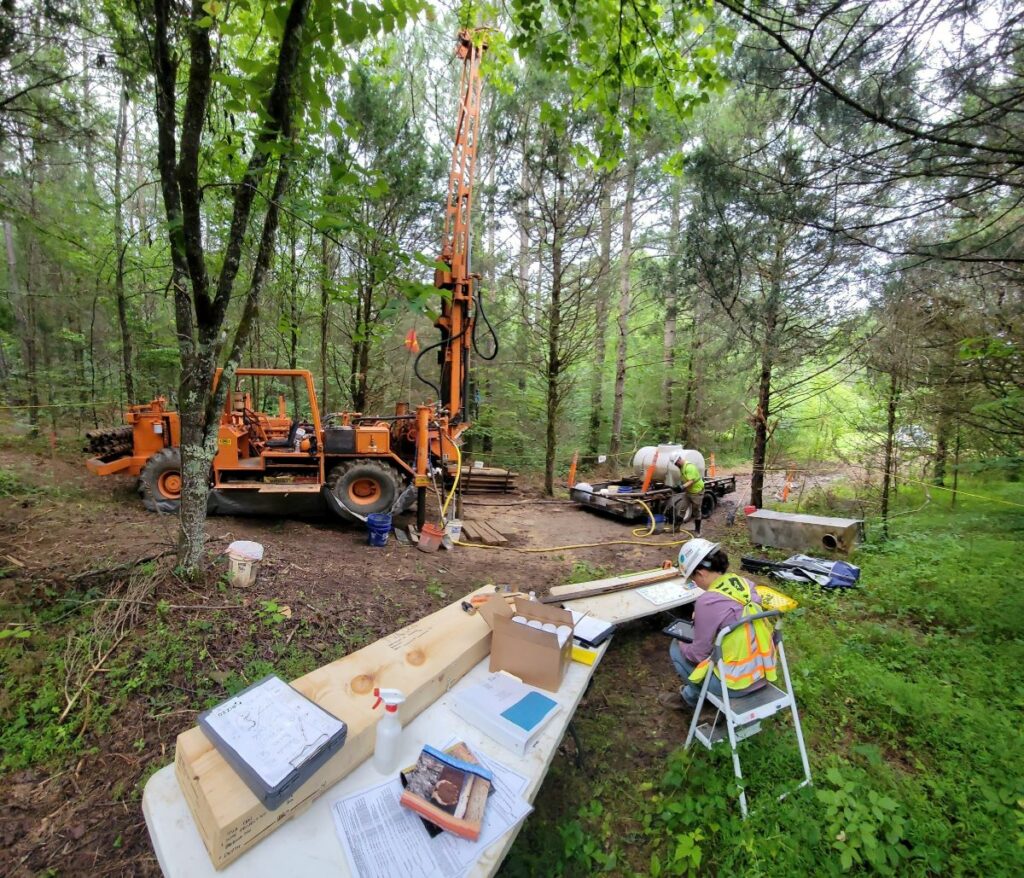Why Do You Need a Geotechnical Report?
Imagine this scenario: You find a great deal on a piece of land in a prime location and even have a potential tenant lined up. As you’re wrapping up your due diligence period, you are asked about a geotechnical report. You do some digging and find out it’s required for the deal to close. Worse yet, you find it’ll take four weeks to get the report, weather permitting, and you have…four weeks left in the due diligence period. This is going to be close. You think to yourself, “Why do I even need this report!?”
Good news!
You have a question and I have an answer.
Here are some of the reasons why you need, and even want a geotechnical evaluation:
- Site Suitability: A geotechnical investigation, along with an environmental site assessment helps with evaluating if a site is suitable for the planned purpose. A geotechnical report will help identify issues such as sinkholes, old fill, soft or other problematic soil conditions, shallow rock, high groundwater, etc. For example, if that nice-looking pond on the site turns out to be a sinkhole, maybe there’s a reason why that prime real estate is vacant.
- Development Costs: The geotechnical report provides information that will help you and your contractor develop a construction budget. For example, is there shallow rock? Rock excavation is expensive! Borings and geophysical testing will help identify it. Another example is the presence of soft soils. A good geotechnical engineer will provide options and work with you on developing cost-effective recommendations.
- Construction Duration: Site conditions impact the duration of a project. By knowing upfront if you’ll need to undercut poor soils or use deep foundations, you can better plan the construction schedule.
- Reducing Risk: Going without a geotechnical report creates a massive unknown for the project team. For example, there have been cases where a site had mature trees and so someone assumed the site had always been that way. However, once a geotechnical evaluation and environmental site assessment was performed, it was found to have been previously developed and worse, contaminated. Geotechnical evaluations help reduce risk and uncertainty.
- Required By Building Code: Chapter 18 of the International Building Code requires geotechnical investigations to be performed allowing for very few exceptions. This is a matter of public safety. Local building codes may require a geotechnical evaluation to be provided for permits to be obtained.
- Basis of Design: A typical set of structural drawings will include a note such as Reference Geotechnical Report prepared by S&ME dated January 12, 2024, for fill placement and compaction requirements which are required to obtain the design parameters listed in these drawings. What is the structural engineer saying? (1) The geotechnical report is part of the design document package (2) They are relying on geotechnical recommendations in developing their designs.
- Geotechnical Responsibility: What happens if something needs to change related to earthwork or foundations during a project? Someone may look to the testing agency but if they didn’t perform the geotechnical evaluation, they may be hesitant to make geotechnical recommendations because then they may be assuming the role of Geotechnical Engineer of Record, taking on additional risk, without having done the work to protect themselves or their client from the additional risk. This can be a big hit to the risk, cost and efficiency of the project.
- Provide Other Valuable Information: There are other things not mentioned above that may be discussed. Seismic site classification, dewatering recommendations, recommendations for additional investigations and recommendations for removing buried debris may be mentioned among many others.
The cost of a geotechnical evaluation is relatively small, particularly when considering the potential costs and risks of proceeding without one. Furthermore, a qualified, experienced geotechnical engineer with local knowledge can be an asset to the project team from due diligence through construction.
Do you still have questions? It’s ok! Reach out to me at jthrasher@smeinc.com or connect with me on LinkedIn and let’s have a conversation.

Jonathan Thrasher, P.E., based in Greenville, S.C., is a Senior Client Developer/Project Manager with S&ME. He is a licensed professional engineer with 20 years of experience in geotechnical engineering and special inspections. S&ME is an engineering, environmental services and construction testing company that celebrated 50 years in business last year.







